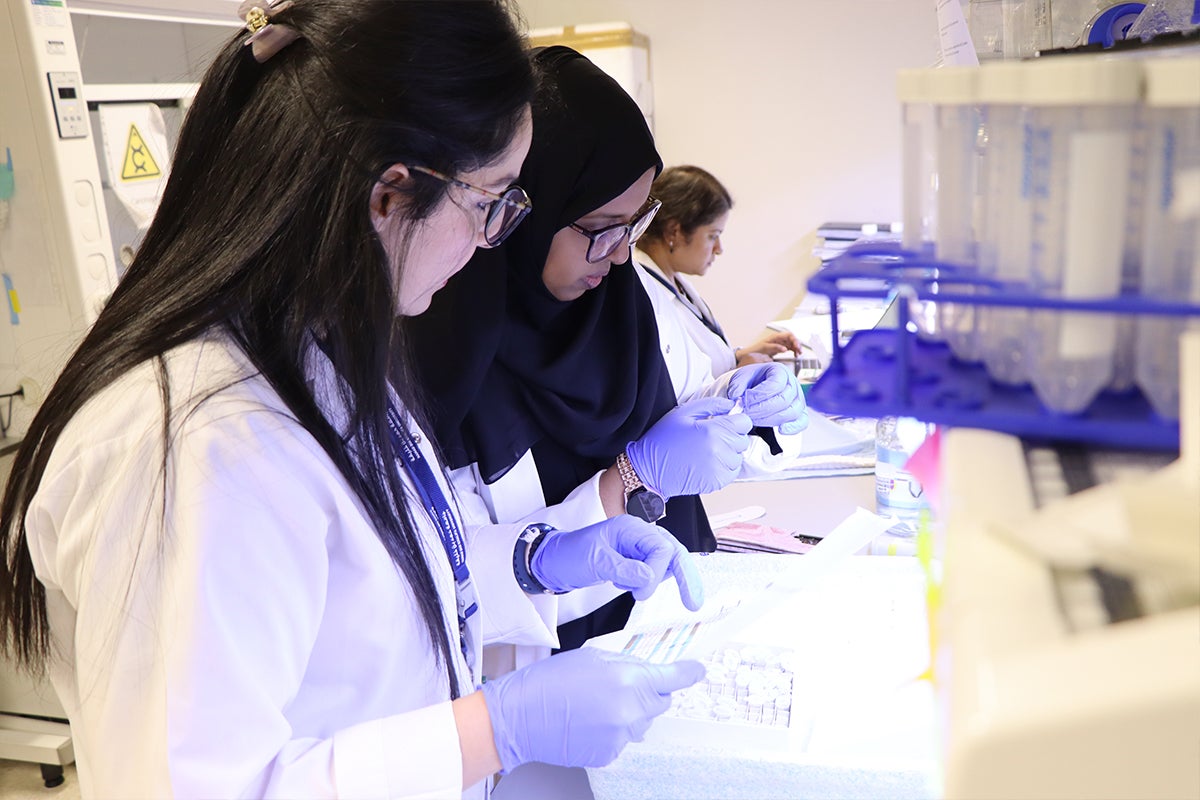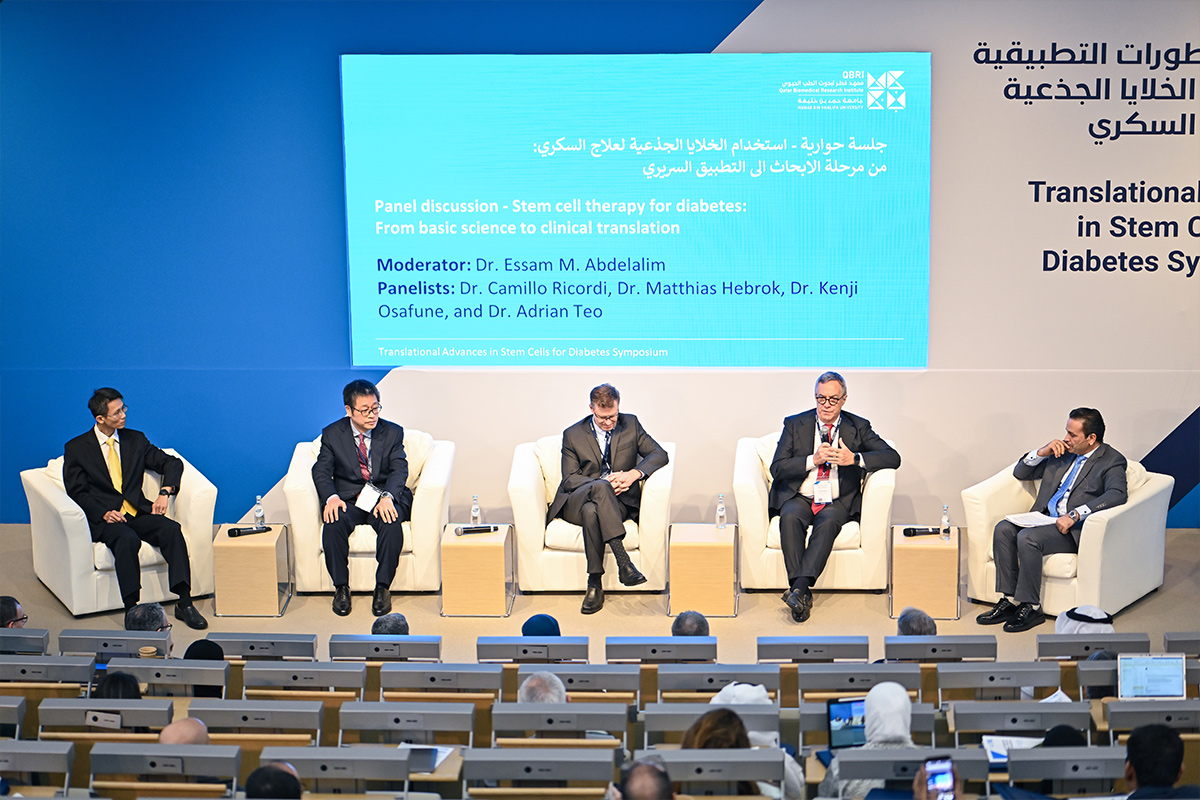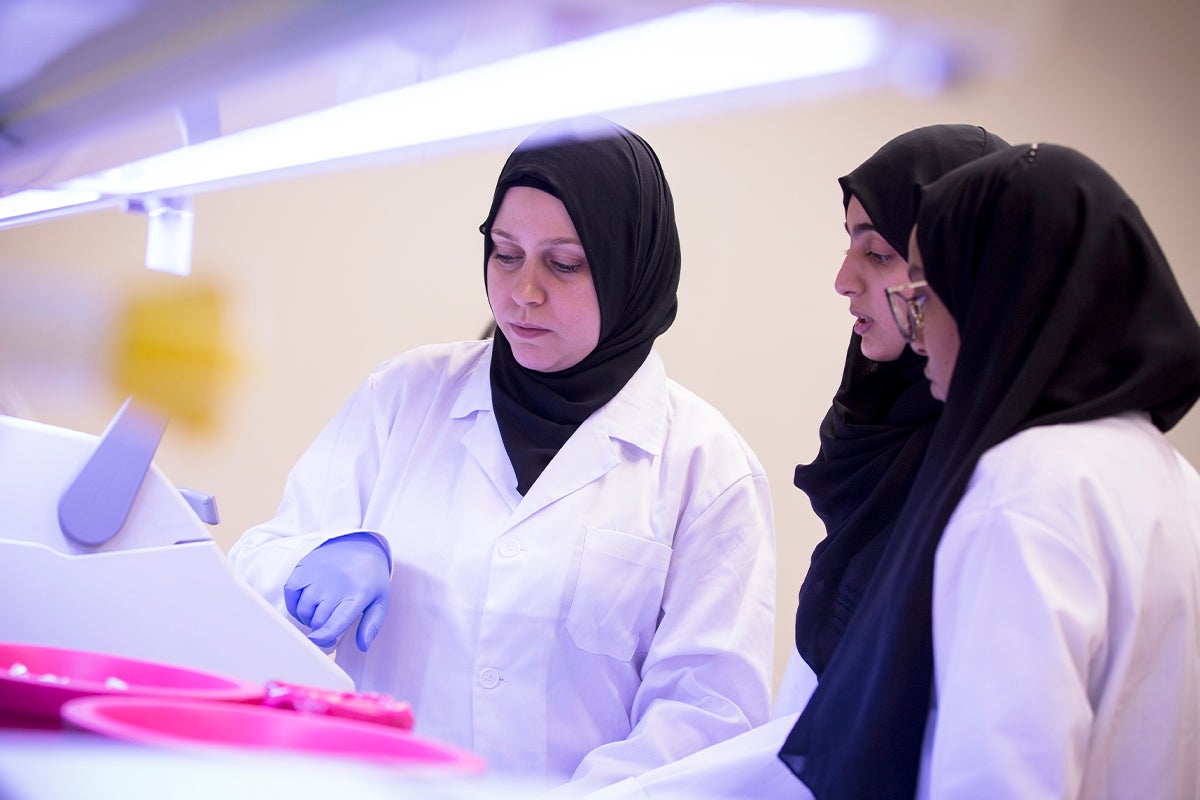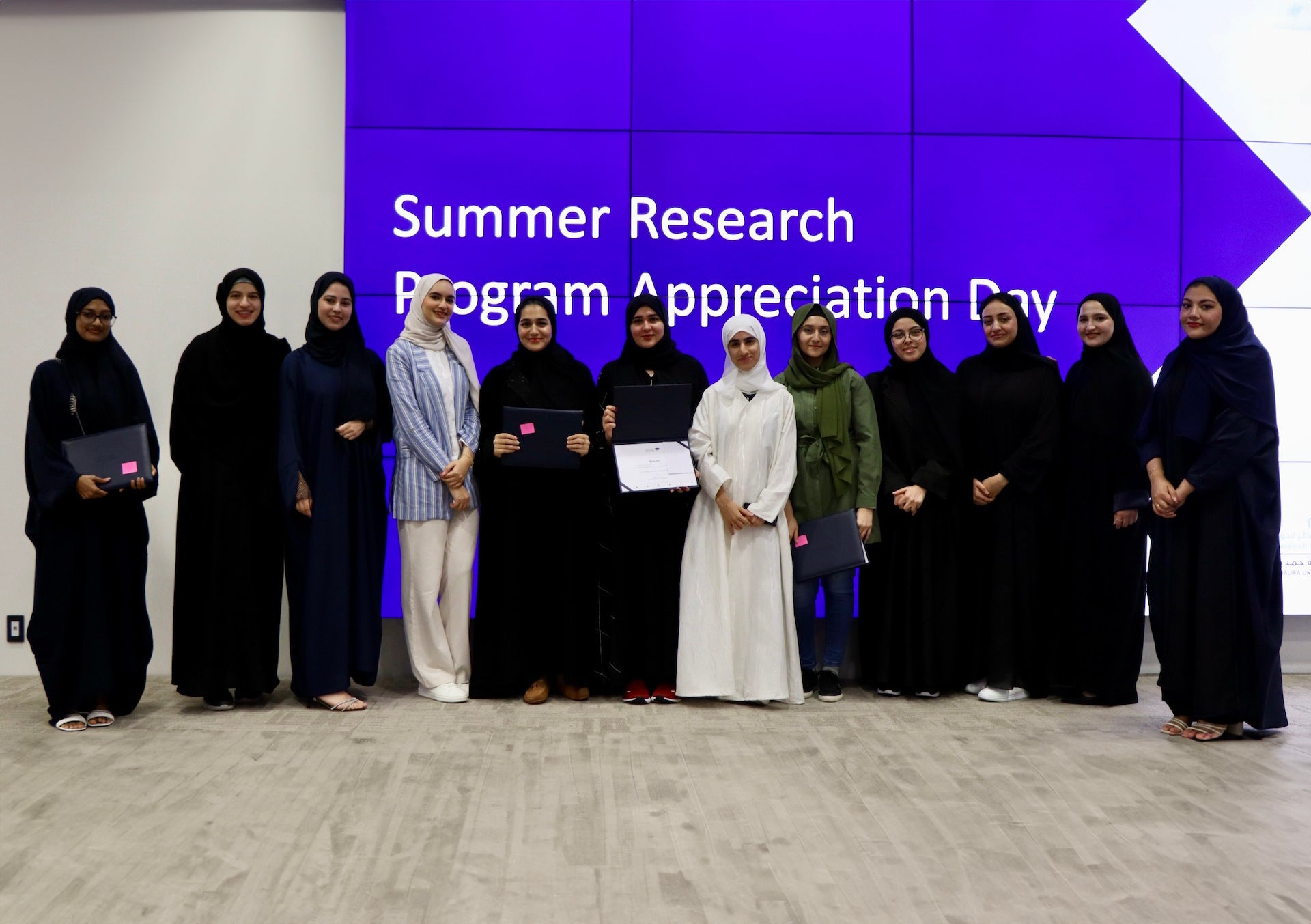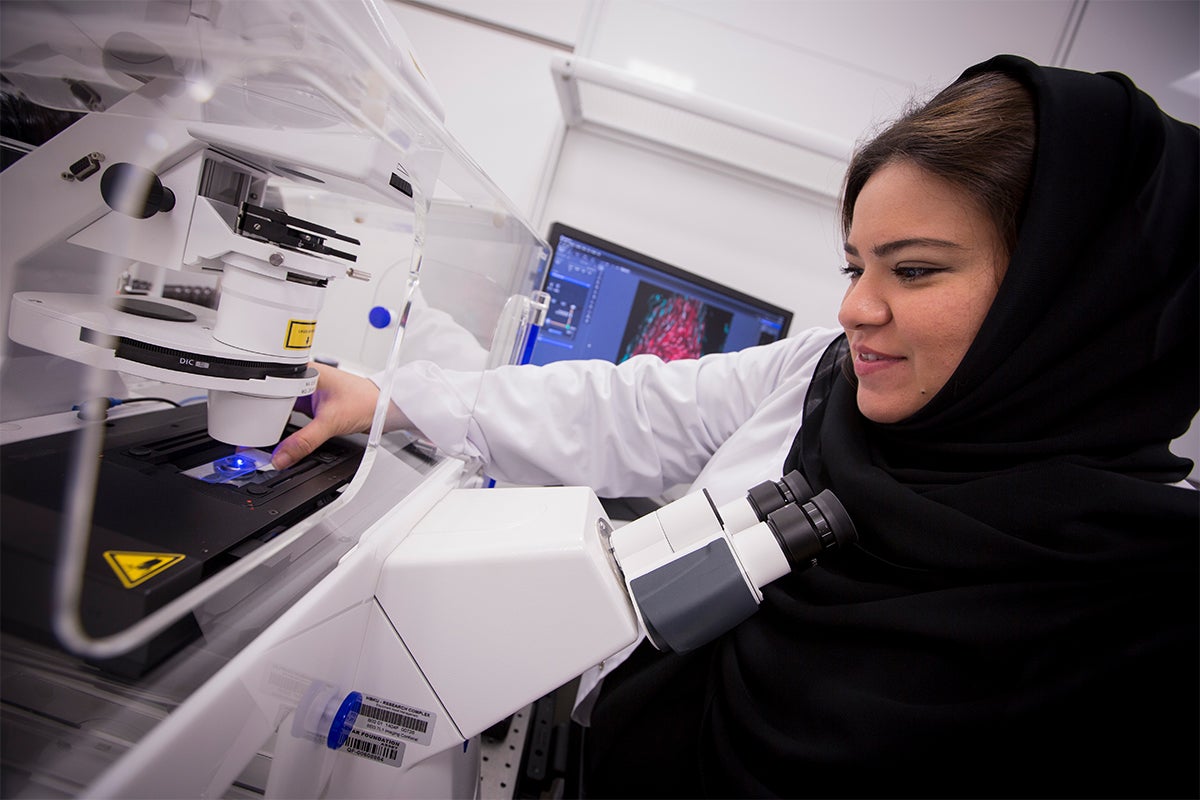
New QBRI Study has Clinical Significance in Seven Cancer Types
Scientists at QBRI’s Translational Cancer and Immunity Center published results in the Journal of Translational Medicine

Researchers at the Translational Cancer and Immunity Center (TCIC), part of Hamad Bin Khalifa University’s (HBKU) Qatar Biomedical Research Institute (QBRI), recently published a new study on the clinical significance of a tumor-based molecular signature that can predict the clinical outcome of patients with 7 different cancer types including brain, breast, kidney, skin, cervical and uterine, and head and neck cancers.
Led by Dr. Julie Decock, Scientist, TCIC, and Joint Assistant Professor at HBKU’s College of Health and Life Studies, the study was performed in collaboration with researchers from Sidra Medicine, HBKU’s Qatar Computing Research Institute, and investigators from Hamad Medical Corporation. The study, which focused on a proportion of humans’ genomic blueprint, the so-called ‘junk RNA’ or non-coding RNA which does not lead to the production of functional proteins, was published in the prestigious Journal of Translational Medicine.
Using an in-depth analysis of the gene expression of tumors the researchers identified a set of molecules – a signature - that could help to distinguish patients with better survival prospects from those with a worse disease course.
“This research highlights an emerging topic in cancer research; the definition of ‘hot’ and ‘cold’ tumors as per the extent of tumor immune cell infiltration and activation, which can help to guide cancer treatment plans and approaches for precision medicine. Using a multi-step approach and a mix of bioinformatic analysis with computational biology methods, we classified tumors from 18 different cancer types into ‘hot’ and ‘cold’ subgroups and identified a ‘signature’ that could potentially be used as a minimal informative signature in the clinic for not one but 7 different cancers. The small size of the signature and the fact that it retains its prognostic value across patient populations including Caucasian and Arab patients makes it a very promising tool for routine use by healthcare professionals,” said Dr. Decock.
HBKU’s QBRI is a pioneering, national research institute that strives to transform healthcare and personalized medicine through translational research, innovation in prevention, diagnosis, as well as treatment of diseases. The Institute’s state-of-the-art laboratories constitute major hubs for driving forward cutting-edge research and innovation in healthcare throughout Qatar, the region, and the international community.
The full study can be accessed at https://translational-medicine.biomedcentral.com/articles/10.1186/s12967-022-03654-7
Related News
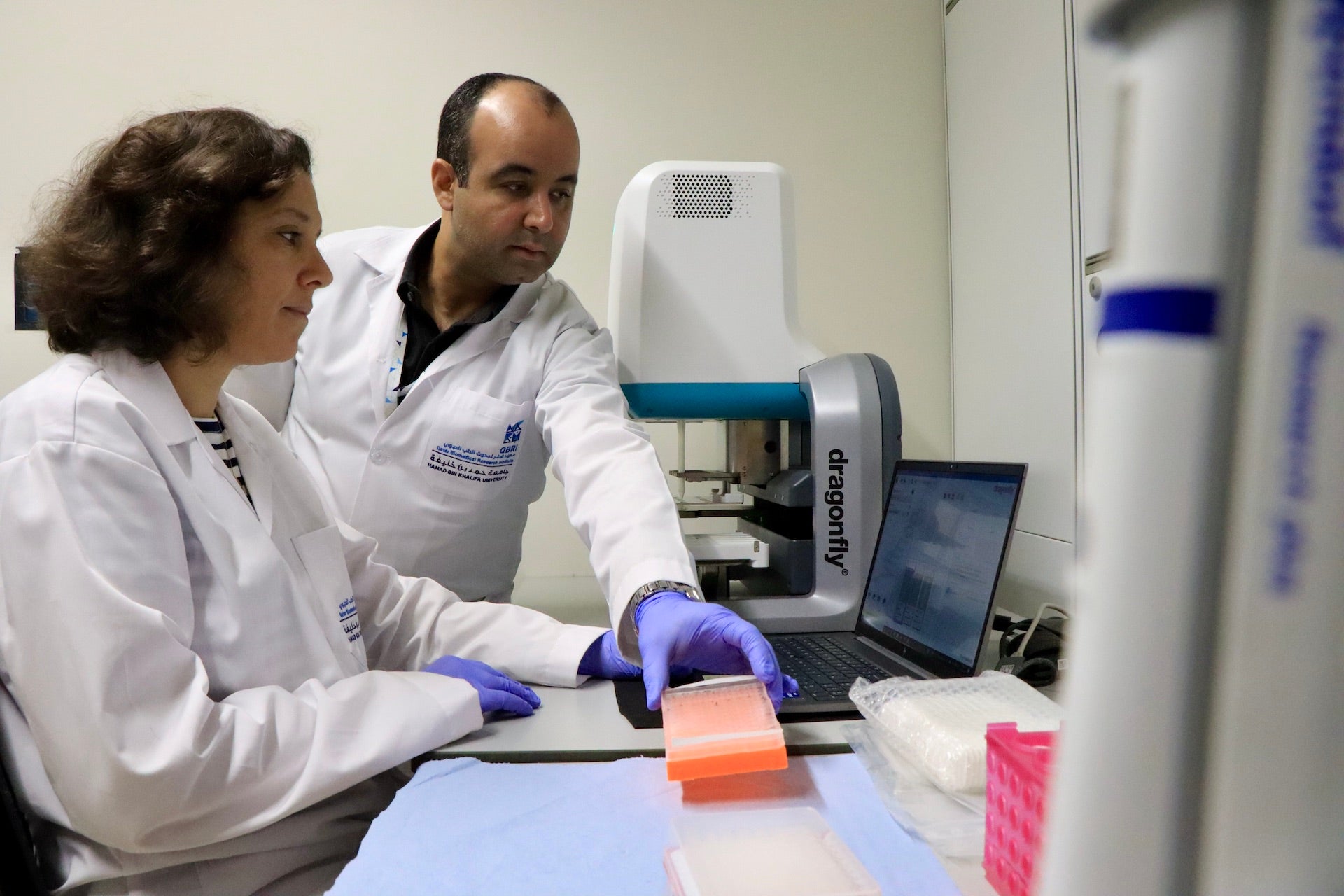
Extensive Collaborations and Unique Technical Capabilities Unveil Neurological Protein Signature of Severe COVID-19

Advancements in Type 1 Diabetes Treatment: FDA Approves CellTrans' Lantidra Cell Therapy

Landmark Study by QBRI Unveils Impact of Cholesterol on Neurodegenerative and Neurodevelopmental Disorders
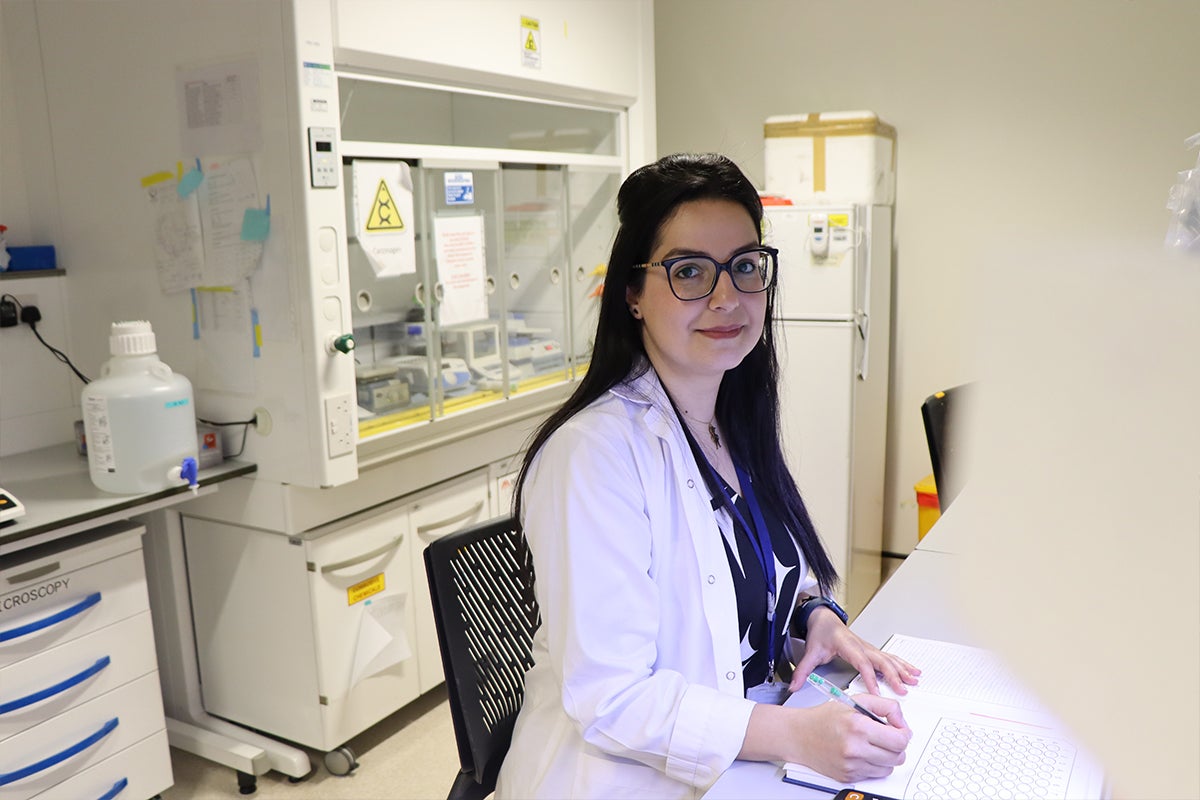
Earlier Diagnosis through Improved Biomarkers to Help Modulate Parkinson’s Disease

Extensive Collaborations and Unique Technical Capabilities Unveil Neurological Protein Signature of Severe COVID-19

Advancements in Type 1 Diabetes Treatment: FDA Approves CellTrans' Lantidra Cell Therapy

Landmark Study by QBRI Unveils Impact of Cholesterol on Neurodegenerative and Neurodevelopmental Disorders

Earlier Diagnosis through Improved Biomarkers to Help Modulate Parkinson’s Disease

Extensive Collaborations and Unique Technical Capabilities Unveil Neurological Protein Signature of Severe COVID-19

Advancements in Type 1 Diabetes Treatment: FDA Approves CellTrans' Lantidra Cell Therapy

Landmark Study by QBRI Unveils Impact of Cholesterol on Neurodegenerative and Neurodevelopmental Disorders

Earlier Diagnosis through Improved Biomarkers to Help Modulate Parkinson’s Disease

Extensive Collaborations and Unique Technical Capabilities Unveil Neurological Protein Signature of Severe COVID-19

Advancements in Type 1 Diabetes Treatment: FDA Approves CellTrans' Lantidra Cell Therapy

Landmark Study by QBRI Unveils Impact of Cholesterol on Neurodegenerative and Neurodevelopmental Disorders

Earlier Diagnosis through Improved Biomarkers to Help Modulate Parkinson’s Disease

Extensive Collaborations and Unique Technical Capabilities Unveil Neurological Protein Signature of Severe COVID-19

Advancements in Type 1 Diabetes Treatment: FDA Approves CellTrans' Lantidra Cell Therapy

Landmark Study by QBRI Unveils Impact of Cholesterol on Neurodegenerative and Neurodevelopmental Disorders

Earlier Diagnosis through Improved Biomarkers to Help Modulate Parkinson’s Disease

Extensive Collaborations and Unique Technical Capabilities Unveil Neurological Protein Signature of Severe COVID-19

Advancements in Type 1 Diabetes Treatment: FDA Approves CellTrans' Lantidra Cell Therapy

Landmark Study by QBRI Unveils Impact of Cholesterol on Neurodegenerative and Neurodevelopmental Disorders

Earlier Diagnosis through Improved Biomarkers to Help Modulate Parkinson’s Disease

Extensive Collaborations and Unique Technical Capabilities Unveil Neurological Protein Signature of Severe COVID-19

Advancements in Type 1 Diabetes Treatment: FDA Approves CellTrans' Lantidra Cell Therapy

Landmark Study by QBRI Unveils Impact of Cholesterol on Neurodegenerative and Neurodevelopmental Disorders

Earlier Diagnosis through Improved Biomarkers to Help Modulate Parkinson’s Disease

Extensive Collaborations and Unique Technical Capabilities Unveil Neurological Protein Signature of Severe COVID-19

Advancements in Type 1 Diabetes Treatment: FDA Approves CellTrans' Lantidra Cell Therapy

Landmark Study by QBRI Unveils Impact of Cholesterol on Neurodegenerative and Neurodevelopmental Disorders

Earlier Diagnosis through Improved Biomarkers to Help Modulate Parkinson’s Disease

Extensive Collaborations and Unique Technical Capabilities Unveil Neurological Protein Signature of Severe COVID-19

Advancements in Type 1 Diabetes Treatment: FDA Approves CellTrans' Lantidra Cell Therapy

Landmark Study by QBRI Unveils Impact of Cholesterol on Neurodegenerative and Neurodevelopmental Disorders

Earlier Diagnosis through Improved Biomarkers to Help Modulate Parkinson’s Disease

Extensive Collaborations and Unique Technical Capabilities Unveil Neurological Protein Signature of Severe COVID-19

Advancements in Type 1 Diabetes Treatment: FDA Approves CellTrans' Lantidra Cell Therapy

Landmark Study by QBRI Unveils Impact of Cholesterol on Neurodegenerative and Neurodevelopmental Disorders

Earlier Diagnosis through Improved Biomarkers to Help Modulate Parkinson’s Disease

Extensive Collaborations and Unique Technical Capabilities Unveil Neurological Protein Signature of Severe COVID-19

Advancements in Type 1 Diabetes Treatment: FDA Approves CellTrans' Lantidra Cell Therapy

Landmark Study by QBRI Unveils Impact of Cholesterol on Neurodegenerative and Neurodevelopmental Disorders

Earlier Diagnosis through Improved Biomarkers to Help Modulate Parkinson’s Disease

Extensive Collaborations and Unique Technical Capabilities Unveil Neurological Protein Signature of Severe COVID-19

Advancements in Type 1 Diabetes Treatment: FDA Approves CellTrans' Lantidra Cell Therapy

Landmark Study by QBRI Unveils Impact of Cholesterol on Neurodegenerative and Neurodevelopmental Disorders

Earlier Diagnosis through Improved Biomarkers to Help Modulate Parkinson’s Disease

Extensive Collaborations and Unique Technical Capabilities Unveil Neurological Protein Signature of Severe COVID-19

Advancements in Type 1 Diabetes Treatment: FDA Approves CellTrans' Lantidra Cell Therapy

Landmark Study by QBRI Unveils Impact of Cholesterol on Neurodegenerative and Neurodevelopmental Disorders

Earlier Diagnosis through Improved Biomarkers to Help Modulate Parkinson’s Disease

Extensive Collaborations and Unique Technical Capabilities Unveil Neurological Protein Signature of Severe COVID-19

Advancements in Type 1 Diabetes Treatment: FDA Approves CellTrans' Lantidra Cell Therapy

Landmark Study by QBRI Unveils Impact of Cholesterol on Neurodegenerative and Neurodevelopmental Disorders

Earlier Diagnosis through Improved Biomarkers to Help Modulate Parkinson’s Disease

Extensive Collaborations and Unique Technical Capabilities Unveil Neurological Protein Signature of Severe COVID-19

Advancements in Type 1 Diabetes Treatment: FDA Approves CellTrans' Lantidra Cell Therapy

Landmark Study by QBRI Unveils Impact of Cholesterol on Neurodegenerative and Neurodevelopmental Disorders

Earlier Diagnosis through Improved Biomarkers to Help Modulate Parkinson’s Disease

Extensive Collaborations and Unique Technical Capabilities Unveil Neurological Protein Signature of Severe COVID-19

Advancements in Type 1 Diabetes Treatment: FDA Approves CellTrans' Lantidra Cell Therapy

Landmark Study by QBRI Unveils Impact of Cholesterol on Neurodegenerative and Neurodevelopmental Disorders

Earlier Diagnosis through Improved Biomarkers to Help Modulate Parkinson’s Disease

Extensive Collaborations and Unique Technical Capabilities Unveil Neurological Protein Signature of Severe COVID-19

Advancements in Type 1 Diabetes Treatment: FDA Approves CellTrans' Lantidra Cell Therapy

Landmark Study by QBRI Unveils Impact of Cholesterol on Neurodegenerative and Neurodevelopmental Disorders

Earlier Diagnosis through Improved Biomarkers to Help Modulate Parkinson’s Disease

Extensive Collaborations and Unique Technical Capabilities Unveil Neurological Protein Signature of Severe COVID-19

Advancements in Type 1 Diabetes Treatment: FDA Approves CellTrans' Lantidra Cell Therapy

Landmark Study by QBRI Unveils Impact of Cholesterol on Neurodegenerative and Neurodevelopmental Disorders






